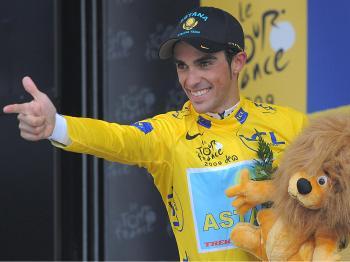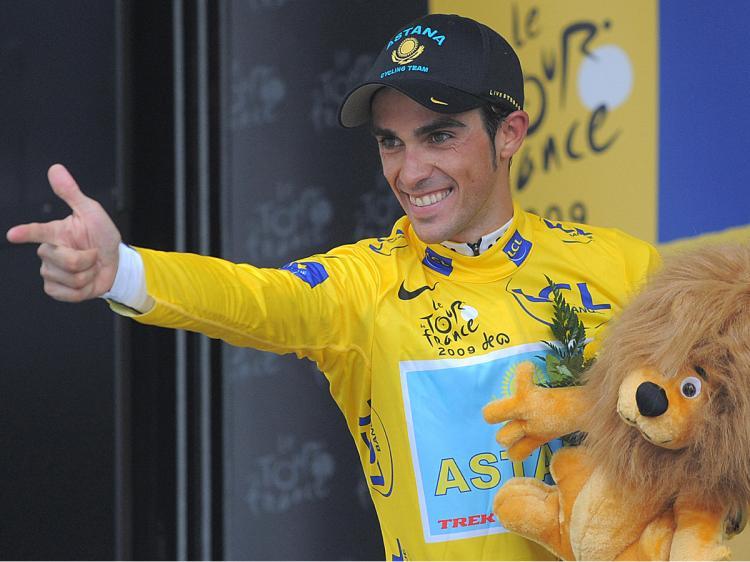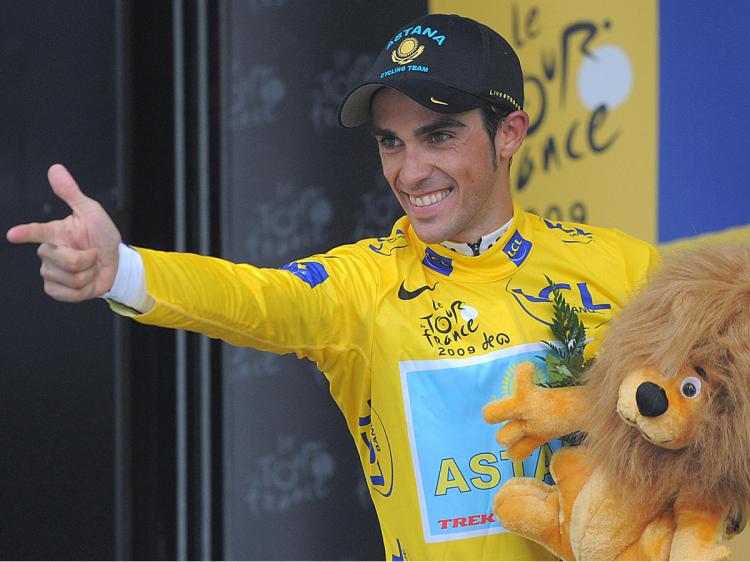Contador Fastest in Tour’s Final Time Trial
Alberto Contador showed that he is the fastest rider in the 2009 Tour de France, winning the final time trial.

Alberto Contador gives his 'pistol shot' salute from the top step of the podium of Stage Eighteen of the 2009 Tour de France. Patrick Hertzog/AFP/Getty Images
|Updated:





